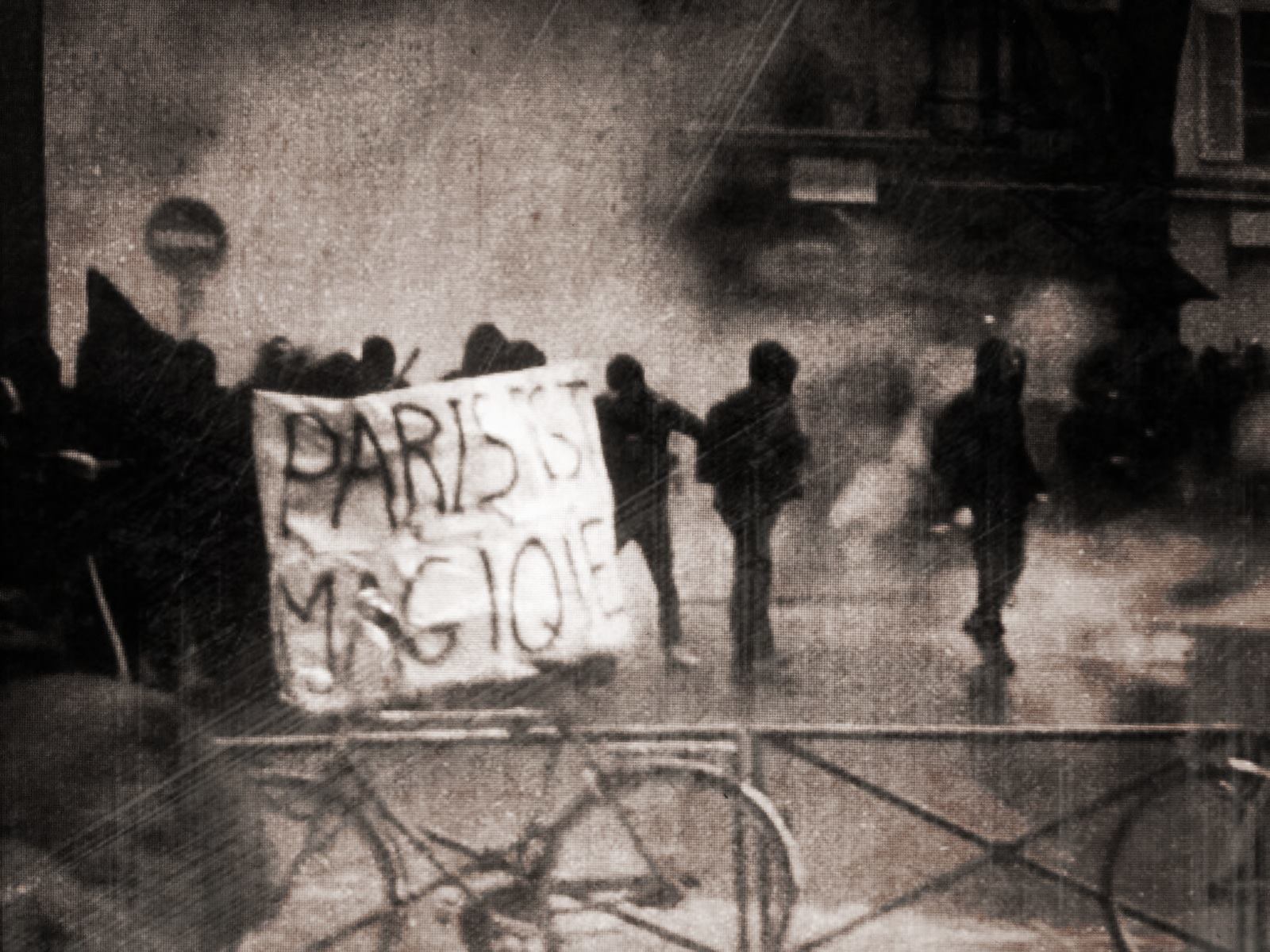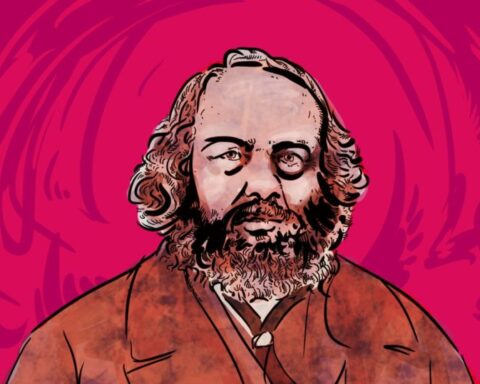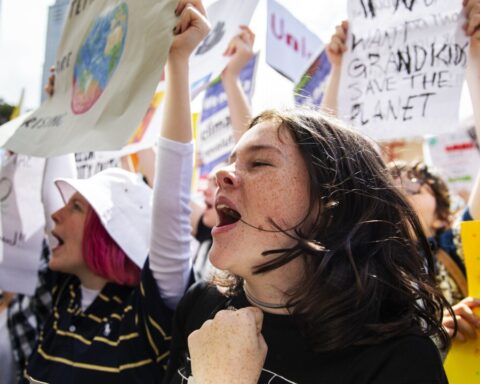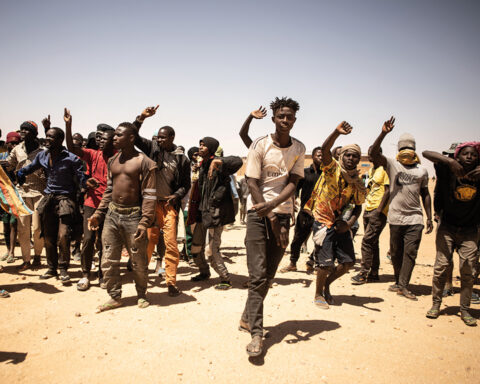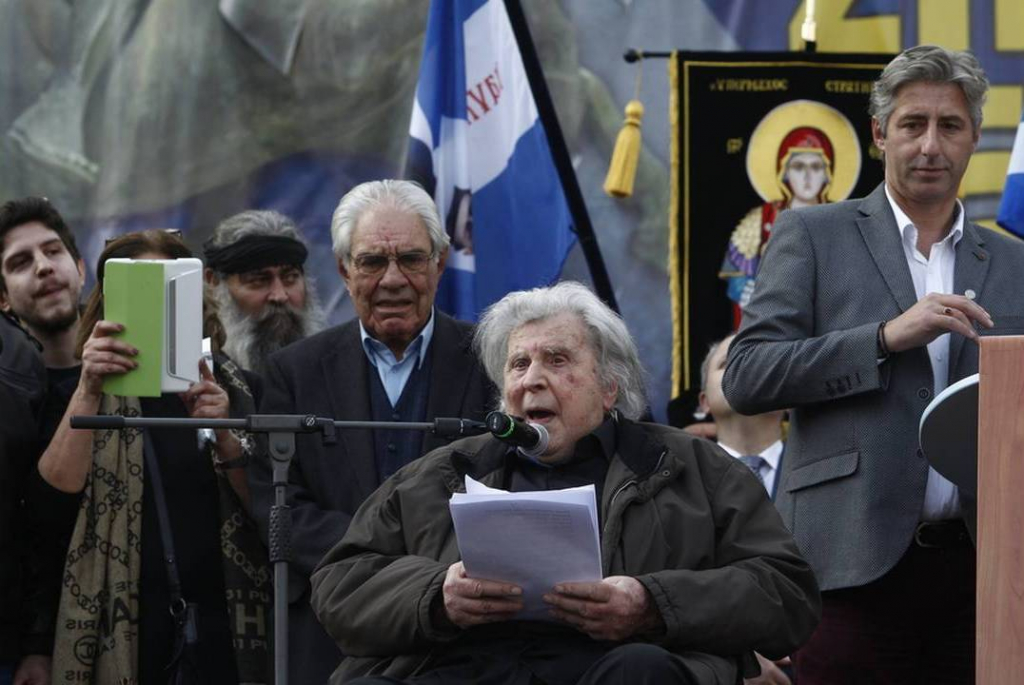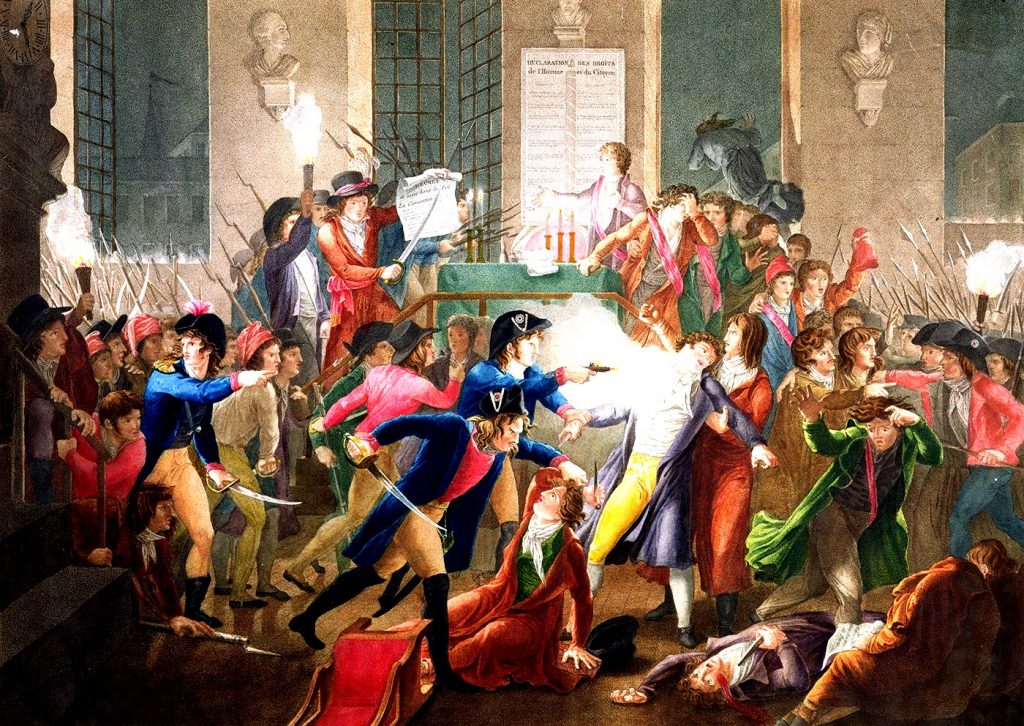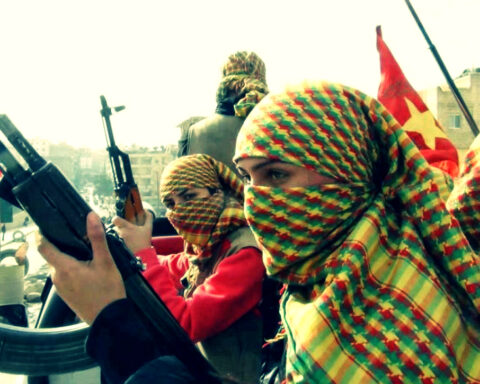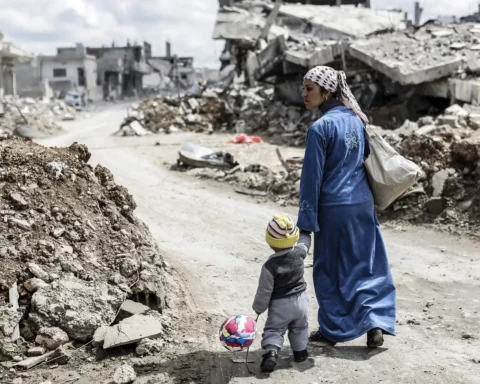Beginning by abandoning the old idea of revolution and reinventing it … Not as a new ideology but as a true praxis of an ethics of freedom to redefine the desirable and the undesirable and to create a new subjectivity that makes possible the impossible.
Octavio Alberola, Revolución o colapso
What follows is an exercise in the sharing of ideas, of visions. The most recent essay by the invisible committee, NOW, continues a reflection-intervention that began with The Coming Insurrection and To Our Friends, and offers a powerful critique of contemporary politics, along with a defense of “autonomy”. What is proposed here then is a partial translation, summary, and occasionally a commentary and exemplification, or simply a montage, of some of the ideas that animate their vision of our times.
It also may be taken as a commentary on our recent posts dedicated to Eduardo Viveiros de Castro and Jacques Rancière, as well as on Spain´s 15th of May movement.
The apparently seamless order of the our world belies its tattered fragments. The promised unity of a global order is sustained only in the realm of illusion by the flickering of screens bleating forth a continuous flow of images. The content of the latter is meaningless, it is the flow that matters, that there be images, the spectacle of our own ongoing passivity. But all about us are the shards of “society”, “science”, “labour”, “states”. The seeming homogeneity of desires is fractured by unmanageable spaces, proliferating knowledges, precarious, uncertain ways of survival and sovereign authorities that exist only through open or less than hidden states of exception. Fragmentation devours all that is solid in its path, like the touch of a King Midas of instability.
“Wage labour explodes in all sorts of niches, of exception, in conditions of anomaly. The idea of the “precariat” opportunely conceals that there is simply no longer any common experience of work, even precarious. So that as well there can no longer be any common experience of its cessation, and the old myth of the general strike can be placed on the shelf of useless accessories. Western medicine is reduced to tinkering with techniques that explode its doctrinal unity, such as acupuncture, hypnoses or magnetism. Beyond the usual parliamentary fiddling, there is no longer, politically, any majority for anything. The wisest political commentary, during the conflict generated by the Labour Law of the spring of 2016 [France], noted that two minorities, a government minority and a demonstrating minority, clashed with each other before a theatre of spectators.” (the invisible committee, Now, 19-20)*
Even our own selves dissolve in a confusing stream of disconnected feelings, experiences, thoughts, held together again in the delusion that meaning is to be found in the blind collecting of consumed experiences.
“The contemporary experience of life in a world comprised of circulation, telecommunications, networks, a chaos of information in real time and of images aiming to capture our attention is fundamentally discontinuous.” (20)
The presumed general interest dissolves and states can do no more than call upon their militarised police and their policing military to see through even the most modest of plans (e.g., Val de Suse, Gezi Park, the airport at Notre-Dame-des-Landes, Standing Rock, and the like); each “public” investment, each infrastructure project, is seen for what it is, criminal theft.
The unities of the past, the person, the nation, the state, the society and economy, and so on, were always fictions, but they were effective fictions. “What is for sure is that the illusion of unity no longer succeeds in making illusory, in reigning in, in disciplining. In everything, hegemony is dead and the singularities become savage: they carry with them their own meaning, and await no general order. The little overlooking point of view that allowed anyone with a little authority to act as ventriloquist for everyone else, to judge, to classify, to hierarchise, to moralise, to notify each person what they must do and how they should do it, has become inaudible. All of the things that “must” be done have been laid low.” (21)
History, progress, the roots of tradition and the hopes of the future fall away. The fragments that remain reduce our temporality to the present, to a now. The authority of states and all that they command must thus force the illusions of History evermore, but in so doing, only further reveal the emptiness of what is supposed to seduce. History is nothing before the latest, new and improved, consumer object/relation/experience that is condemned to obsolescence in the very moment of its consumption. If the State’s ambition is to manage, and to manage the totality of the social life that it gives form to/creates, then it is an ambition that is increasingly strained, depending on ever greater violence and police rule; the more it tightens its hold, the more “society” implodes at its base.
“Of unity, only nostalgia remains, but it speaks louder and louder. Everywhere candidates present themselves to restore national grander, to “Make America great again” or “bring order back to France”. At the same time, when one is nostalgic for French Algeria, what can one be nostalgic for? Everywhere, one promises then to remake by force the lost unity. Only that the more one “cleaves” by discoursing on the “sentiment of belonging”, the greater the certainty that one does not belong to any of this spreads. To mobilise the panic to restore order, is to miss what is essentially dispersive in panic. The process of general fragmentation is so unstoppable that all of the brutalities which will be used to remake the lost unity will only accelerate it, rendering it more profound and more irreversible. When there is no longer any common experience, except that found in front of screens, one may well create brief moments of national communion after “terrorist” attacks by deploying an array of drooling sentimentality, false and empty, one can decree all manner of “wars on terrorism”, one can promise to retake control of all “no-go areas” that one wants, all this remains a newsflash on BFM-TV, at the back end of a kebab shop, and whose sound can’t be heard. This kind of nonsense is like medication: for it to remain effective, the dosage has to be continuously increased, until the final neurasthenia. Those who look favourably on the perspective of ending their existence in a cramped and over-militarised citadel, even one as large as France, while all around, the water rises, carrying the bodies of the unlucky, may very well call “National traitors” all of those who displease them. In their barking, nothing but their powerlessness is heard.” (27)
And for those who would contest, struggle against, this established order, to appeal to the same false unties that underlie capitalism would be to contribute to those same illusions, restraining what is possible within the frame of those illusions and a future order, or said differently, making possible the capture of struggles by the State.
Everything becomes plural, local, situated; paradoxically sharing the common trait of flight. “It is not only that the people are wanting … they have already made their suitcases, in a thousand unsuspected directions. They are not only abstentionist, in retreat, nowhere to be found: they are in flight, even if their flight would be nothing but interior or immobile. They are already elsewhere.” (28) And it will not be the new populists of the left, a Mélenchon or Iglesias, who will bring them back. “What is called ‘populism’ is not only the glaring symptom of the disappearance of the people, it is a desperate attempt to hold on to what remains of the haggard and disoriented.” (29)
In the tired marches and demonstrations of labour unions and left-wing political parties, those who parade are like marionette ghosts, repeating gestures and slogans mechanically, lifelessly. The Internationale falls like a corpse from their lips, to be swept up by the municipal street cleaners who follow. What life erupts from these pacified processions of the living dead does so, as it did in France during the 2016 Spring, when the head of the marches were “taken” by those desirous to break with the imposed sleep, by the casseurs, the “violent rioters” quickly labelled “anarchists” and “black blocks”. But the names hide more than they reveal, for what happened on these occasions, and again the French example is helpful, “is that a certain number of deserters created a political space where to compose their heterogeneity, an ephemeral space certainly, insufficiently organised undoubtedly, but attainable and, for the duration of a Spring, really existing.” (Now, 30) Our fragmented world is acephalous, mirrored and multiplied in endless forms, including in the futile and paralysed left. But those who took the “head” of the protests in Paris, for example, did not do so to provide them with a new leadership, but rather to unleash the autonomous multiple gestures that they harboured and rendered possible.
These last months, a remarkable wind of protest rose against labour law.
Facing it, the government, its ministers , its president and its police, have opted for political and police repression , at a rare level and multiplied the blows of force to quell the movement . Normalising, social violence and media manipulation are all so many symptoms that reflect the massive discomfort of a society where the people are strategically muzzled . This film is the voice of those who revolt, whoever they are, and especially those we never hear, despised by authorities, mass media and dominant discourse.]
[Gloss: The “global” occupy movement of 2011, beginning with the Arab Spring and seemingly replicating itself in numerous other countries and cities, is the most significant “social-political movement” of our time. To speak in the singular here though is to suggest a unity of intention and/or ideology across these movements which does not exist. And yet their shared occupation of city squares intimates some commonality, to be sought at other levels of lived reality. Tomás Ibáñez, writing of the Spanish movement 15M of 2011, states that it “marked in a clear way a before and an after in the scenario of protests and collective conflict.” (Anarquismos a contratiempo, 263) Ibáñez’s judgement may not be extendable to other countries for various reasons, but in the Spanish context, it echos true. However, the intensity and resonances of the movement are not due to any unified organisation, ideology or aim born with 15M. The “movement” was and remains as fragmented as the politics that it emerged to challenge. Its force, its radicalness, must therefore be found elsewhere. And for Ibáñez, everything changes the moment we focus on 15M’s organisational forms and practices of struggle, conceived and put into effect without any conscious appeals to past ways of doing politics (15M is a movement of the radical present, for good or ill).
“The originality of 15M consisted in the fact that it was an event, in the full sense of the word, that introduced new things into the political scenario charged with an unquestionable political radicalness, that curiously contrasted with the absence of any radicalness in its explicit demands.” (266) Instead of merely expressing opposition and through protest seeking change, typically at the level of State policy, 15M was much more. “Even though in the beginning, it was the usual popular concentration to express a protest and make a demand, this very quickly transformed itself into a different phenomenon. The thousands of people who invaded the streets and squares did not do so only to demonstrate against this or in favour of that, but they did so also to institute themselves or, more precisely, to self-institute themselves as subjects in a political process.” (267)
…
“This process of self-institution required that the people organise themselves, debate, elaborate collectively their own political discourse, and construct in common the necessary elements to make possible the maintenance of the mobilisation and the development of political action.”
“The importance that the rejection of representation acquired in the heart of the movement – the famous ‘they don’t represent us’, of course, but also accompanied by the refusal to be represented by any permanent entities: ‘no one can claim the right to represent us’ – indicates what the novelty was that the movement introduced into the conventional political game. In effect, a radical rupture was produced with practices that consisted of responding to agendas elaborated externally, that is by others who basically were not among the mobilised. In the public squares, diverted from its conventional and authorised uses, the imagination set to work to create spaces, construct conditions and elaborate procedures that would permit people to elaborate by themselves and collectively their own agenda, at the margin of pre-established and imported ideologies.”
“From the moment that the rejection of representation constituted itself as the active principle of the action of 15M, the only discourses, the only compromises, that were recognised and that were assumed as legitimate, were those that came from the very interior of the movement, those generated from within. Only what the movement produced through and by itself was accepted, autonomously, following the rules of free debate in a non-hierarchical frame.” (268)
The extraordinary significance of 15M thus lies not in what it promised for the future, nor in any rehabilitation of some glorious revolutionary past, ideological or practical, but in what it realised in the present. “If anything profoundly characterised 15M, it was its unyielding will for autonomy, a generalised demand for autonomy and self-determination that imposed the fixing of its own objectives and the determination of its own ways of being, as well as the rejection of domination, not allowing itself to be lead by any external entity, and to decide to act for itself.” (268)
As a political movement, an essentially plural movement, 15M sought not to weld the fragments of social life into a new, false unity, but to create a space of passage, a threshold, through and from which different agencies could enter, gain sustenance, and depart, to possibly return again. If 15M resonated and resonates still in the country, it is because its political children are many. And at its most intense, it not only shared ideas, but bodies. That is, for very, very many who came to the occupied squares of Spain’s cities, what they found was not a politics segregated from all other spheres of life, “politics” as usual, but a politics embedded in life and the care that makes possible the reproduction of forms of life in radical opposition to capitalism, if any such opposition is to be true. 15M was not ideology, organisation, fixed practices, leadership, representatives, but the sharing, to speak metaphorically, of wine and bread in a life giving meal that could be re-enacted and edified into a form of life.
Podemos is Judas at this supper, but the murder that it desires and with which it is complicitous has so far failed.
The invisible committee is critical of Nuit Debout, France’s incarnation of the “occupy movement”, precisely for its fetishism of form, democratic form, voting upon matters that could have no possible execution and which in the end only served to domesticate the occupation. If it too was lacking in any homogeneity, if unplanned gatherings and demonstrations also gestated in its midst, if it also contributed to making the movement against the proposed labour law reform of 2016 in France much more than simply another protest movement, it came to grief on the separation of politics from life and the presumed and desired sovereignty of the former; the belief that life can be governed, mirrored in the image of government of the self. (Now, 52-6)
The invisible committee’s argument here takes us further than most of the political readings of the occupy movements. For what emerges from their considerations is a re-thinking of the very concept of autonomy. So often imagined in terms of self-possession, it finds expression in the State and in the person in the concept of sovereignty. Neither of the two, State or person, are conceivable without it. But then neither are imaginable without violence, the violence that represses and/or destroys that which escapes rule. The task then is to think and live autonomy beyond sovereignty; a sovereignty which in any case has been irretrievably lost in the debris of capitalism’s disaster. The anonymous many who have filled streets and city squares are the uprooted and disoriented offspring of the disaster, who gather not as the “people united”, but as a community of the nameless.]
If any semblance of unity continues to structure State authority, it is only through fear, surveillance and the physical presence of police. The law, the armour of declared and legislated rights that is supposed to protect each citizen’s moral and physical integrity, and thus the guarantor of social unity, is an edifice of ruins. Indeed, as far as the invisible committee is concerned, the Law no longer exists. (33)
“As long as the security of our fellow citizens justifies it, as long as administrative search warrants [passed without a judicial decision] that only the state of emergency allow are indispensable, it is advisable to maintain the state of emergency.” The words were proffered by Emmanuel Macron during the French presidential election campaign and they are now confirmed by his desired extension of the legal exception until the 1st of November, bringing the state of emergency in France up to two years. Whatever hesitations he may have had in the past have vanished (“We cannot live permanently in a regime of exception. It is necessary to return to ordinary law … and to act with the right instruments. We have the legislative apparatus permitting us to respond, over time, to our situation”). And in parallel, there is a proposal for a new and additional anti-terrorist law. (Liberation 24/05/2017) As such laws multiply, both in France and elsewhere, states of emergency in fact cease to be exceptional; such laws create distinct legal subjects with different rights and duties. And as they do so, the diminished rights of suspected criminals and terrorists seep into the fabric of general law, rendering everyone a potential suspect.
The German legal theorist Günther Jakobs elaborated a distinction between two criminal laws: one for “citizens” and another for “enemies”. For Jakobs, the latter includes the rabble, radical opponents, thugs and rogues, “terrorists”, “anarchists”, in sum, all of those who fail to sufficiently respect the reigning democratic order and thereby represent a “danger” to the “normative structure of society”. Should not then such “dangerous individuals” be treated as enemies of society? Do they not exclude themselves from ordinary criminal law, justifying the elaboration of a criminal law for enemies? (33) But to elaborate a law for enemies, is to erase the Schmittian distinction of friend-enemy, which places the enemy outside a constituted sovereignty. That is, it makes all of us potential enemies, it renders the exception normal, thus destroying “normal” criminal law altogether. (The example of the increasing criminalisation of dissent in Spain in the wake of 15M, with the law of Citizen Security of 2013 and the recent police operations, pandoraand piñata, against anarchists, is but one example among many today).
“However paradoxical this affirmation may appear, we live in the time of the abolition of the Law. The metastatic proliferation of laws is nothing but one aspect of this abolition. If each law had not become insignificant in the rococo of contemporary law, would it be necessary to produce so many? Would it be necessary to communicate, with each event, by means of the enactment of new legislation? The aim of the great legal reforms over the last years in France amount almost all to the abolition of current laws, to the progressive dismantling of all judicial guarantees. So much so that the Law, which professed to protect men/women and things before the hazards of the world, has instead become what adds to their precariousness.” The state of exception today reigns “under the form of the law.” (34-5)
[Gloss: “The tradition of the oppressed teaches us that the “emergency situation” in which we live is the rule. We must arrive at a concept of history which corresponds to this. Then it will become clear that the task before us is the introduction of a real state of emergency; and our position in the struggle against Fascism will thereby improve.” Walter Benjamin, Theses on the Philosophy of History]
There are two ways to respond to the state of emergency, we are told by the invisible committee. The first is to denounce it and call for the return of a state of law; an illusory exercise that calls for what never really existed, because the law depends upon the exception, on the constitution of those who are outside the law. There is no law without the violence of separation and that violence is always potentially and in fact directed at the body constituted by the State. The second response is to assume the exception of the law. If the State frees itself from its laws under the exception, then it is for those who contest the State to do the same. “There are those who protest against a phantom, the state of emergency, and there are those who take action and deploy from their own state of exception.” (38)
Before the permanent state of exception, “the maintenance of order is the principle activity of an already failed order”. (109) And the greater the fragmentation of social order, the greater is the presence of an increasingly militarised police.
The loss of all hope among the increasingly superfluous many is also the condition for pure revolt, a “revolt that no longer seeks support in what it denies and which is its own self-authorisation”. (110) Before such disobedience, potential or active, politics is reduced to a vast, daily police operation. (110) And thus rebellion can only direct itself at the body of the State, namely, the police. In Paris, the slogan was, “Everyone hates the police”.
That this statement should appear shocking to some is testimony to the successful imposition of sovereignty by modern State power. At the beginning of the 17th century, for the first thinkers on sovereignty, the police were held to be the very constitution of the State, its very form, rather than a mere instrument of State authority. The police was thus “all that can give ornament, form and splendour to the city” (Turquet de Mayerne), “the ensemble of means that serve the splendor of the whole State and the happiness of all of its citizens” (Hohenthal). Its role is to “lead man to the most perfect felicity that he may enjoy in this life” (Delmare). (111-2) The police then are the government of all of the conditions that render this felicity possible, from the cleanliness of streets to the imprisonment of vagabonds. (112) It is the police as identical with to be policed, that is, ordered, administered, governed by policy, belonging to the city, the polis, the realm of the civilised, in contrast to the savage, those outside the city, inhabitants of unpolicedforests. The police in this instance are the very end of sovereignty: the ideal, legal and ultimately fictional order of the world. The police however must also assure that the order is real, or as real as possible. And here it appears as a means to its own ideal end. Yet without the former, the latter reveals itself as a fiction, and thus “the function of the police as a means is to ensure that from the outside the order desired appears to reign”. Failure however haunts its double role. To act from the “outside” with “necessary” violence is to act from outside the law, to act illegally, to preserve the law. The police is the very embodiment of the paradox of sovereignty, the paradox that the sovereign who defines the legal order does so in an initial act that is a-legal; that the sovereign who defends the constituted order does so through illegalacts. The police “are the proof that the legal is not the real, that order does not reign, that society does not hold because it does not hold by itself“; that all are the work and consequence of their force, a permanent agency of exception in the heart of constituted and “constitutional” political authority. “If the state of exception is this temporary suspension of the law that permits re-establishing, by the most arbitrary and bloody measures, the condition for the rule of law, the police is what remains of the state of exception when these conditions have been restored. The police, in their daily functioning, is what persists of the state of exception in normal circumstances. It is why its sovereign functioning is itself so hidden.” (113)
A French CRS police officer, after arresting someone for no reason during the Paris Spring protests states: “I do what I want. You see, it’s anarchy for me also!” (113)
“The police thus ensure an apparent order that is from within only disorder. It is the truth of a world of lies, and by continuous lies. It confirms that the reigning order is artificial, and that it will sooner or later be destroyed.” (114)
The police is unmasked. It is not that everyone in fact hates the police. They do not. But for those who cry out loudly that they do, they have excellent reasons for doing so. The fragmentation of State power and authority however changes the relation between government and police. Once the mere instruments of politicians, the generalised discredit of the latter renders the police the very condition of government. It is the politicians who now turn to them before any crisis, and cede to them on every demand. Few police bodies would be able, or even willing, to assume openly political autonomy; and for such a body to do so would be to engender a government at war with all or a part of its population. (115-8)
And in response: “It would be senseless to seek a military victory over the police. … The police is a target and not an objective, an obstacle and not an adversary. Whoever takes the cops for an adversary prohibits themselves from breaking through the obstacle that they are. To be able to sweep them aside, one has to aim beyond. Against the police, there is only political victory. Disorganise their ranks, strip them of all legitimacy, reduce them to impotence, hold them at a good distance, grant oneself a larger margin of manoeuvre at the desired moment, as in the chosen places: thus is the police destituted.” (118)
Suffered, the processes of fragmentation may push us towards misery, isolation, schizophrenia. Life may be lived as a pure waste. Nostalgia then possesses us; nostalgia for family, nation, or so many other fictions of wholeness. For is not belonging the only thing that remains to those who no longer have anything? Yet this same fragmentation can also be a starting point, it may also give rise to an intensification and pluralisation of the “relations that make us.” (41) Perhaps then we may see finally that it was our “integration in society” that was “a slow loss of being, a continuous separation, a slipping towards ever greater vulnerability, and an ever more disguised vulnerability.” (41)
“There is in the fragmentation something that points towards what we call ‘communism’: it is the return to earth, the ruin of everything made equivalent, the restitution of all singularities to themselves, the failure of subsumption, abstraction, the fact that moments, places, things, beings and animals all acquire their own name – their own name. Every creation is born of a rupture with the whole. … If the Earth is so rich in natural milieus, it is in virtue of is complete absence of uniformity. To realise the promise of communism held within the fragmentation of the world calls for a gesture, a gesture to be repeated interminably, a gesture that is life itself: that of to provide passages between the fragments, to put them into contact, to organise their encounter, to open the paths that lead from one friendly bit of the world to another without passing through hostile territory, that of establishing the good art of distances between the worlds.” (43)
What these connected fragments are remains open, changing. But they are held together in moving affinities of plural forms of life, archipelagos of life beyond the politics of institutionalised and enforced spectacular commoditification.
__________
*Unless otherwise indicated, all references are to the essay Maintenant, published by La fabrique, 2017.
source: http://autonomies.org/2017/05/reading-our-times-with-now-the-invisible-committee/
